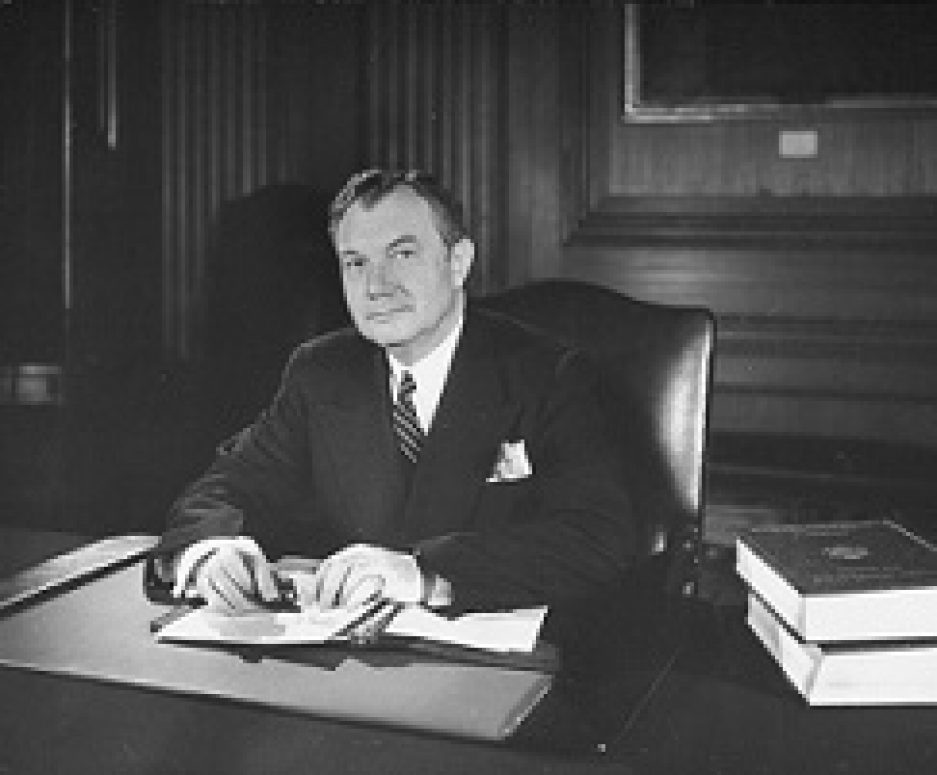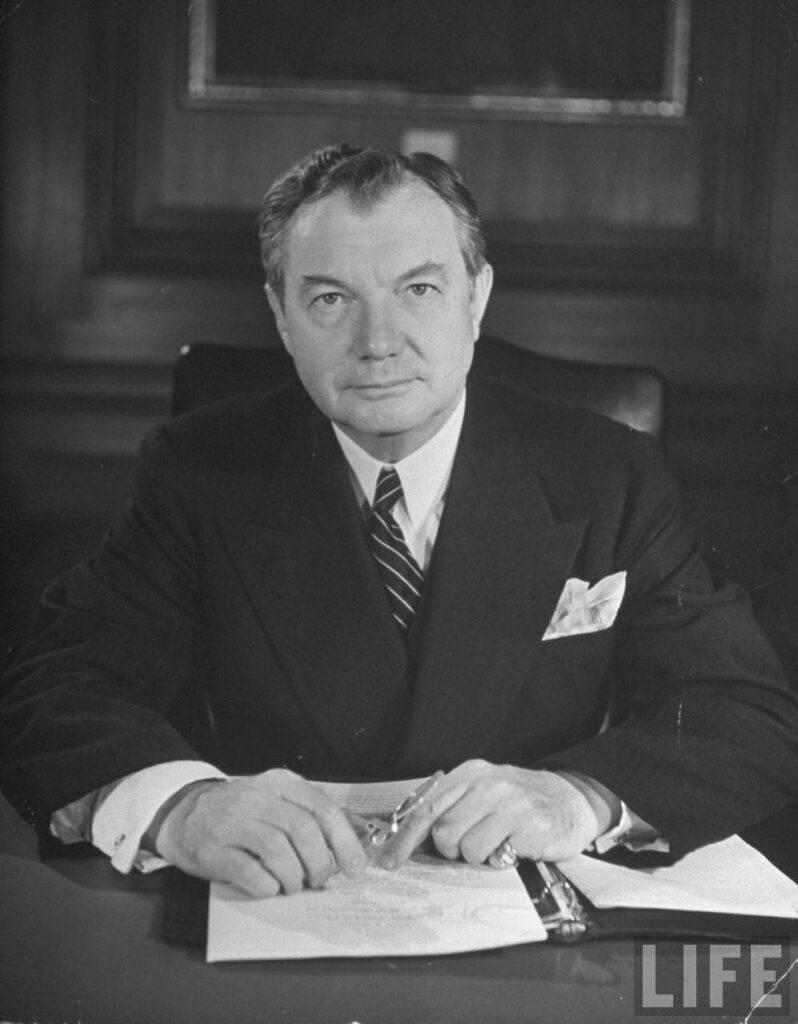Eighty years ago this month, the Allied powers—the U.S., the U.S.S.R., the United Kingdom, and others—were on the brink of defeating Nazi Germany militarily, winning the Second World War in Europe.
The Allies had made commitments to each other from 1941 forward to fight and win the war together.
They also had made commitments to each other regarding their post-war actions. Since Fall 1943, when the Allied nation foreign ministers met in Moscow to discuss a wide range of topics, their nations had been committed to cooperating after the war to restore free governments in Europe, and to build what would become the United Nations organization.
At Moscow in 1943, the Foreign Ministers also addressed holding Nazis accountable for the many atrocities that Allied forces had learned of during the war. On November 1, 1943, the Ministers declared, on behalf of their nations, that at the time of an armistice with a German government,
“those German officers and men and members of the Nazi party who have been responsible for, or have taken a consenting part in [referenced] atrocities, massacres and executions, will be sent back to the countries in which their abominable deeds were done in order that they may be judged and punished according to the laws of these liberated countries and of the free governments which will be created therein.”
The Foreign Ministers also recognized that some of the Nazis who were most responsible for atrocities were arch-perpetrators. The November 1, 1943, Moscow Declaration thus stated that it was
“without prejudice to the case of the major criminals, whose offences have no particular geographical localisation and who will be punished by the joint decision of the Governments of the Allies.”
(For the official Moscow Conference records, click here.)
In February 1945, the Allied nation leaders reiterated these commitments at their conference in Yalta.
Two months later, Allied military victory was imminent.
The new U.S. president, Harry S. Truman, accordingly determined how the U.S. would participate with its Allies in joint punishment of major Nazi war criminals. In late April 1945, he recruited U.S. Supreme Court Justice Robert H. Jackson to be the U.S. chief of counsel. Jackson would be responsible for assembling a team, conducting diplomacy, and prosecuting such cases.
Jackson was five days on this new job, and it was still secret, when Adolf Hitler, the most major of Nazi criminals, committed suicide in Berlin. This occurred on April 30, 1945—eighty years ago today.
On the next day, May 1, Allied military forces, U.S. government officials, and some reporters learned that Hitler was likely dead.
On May 2, President Truman told the press, and thus the world, that “official information” indicated that Hitler was dead.
Justice Jackson learned on one of those days of Hitler’s death.
It does not seem that Jackson spent much time thinking about or commenting on the death of the person who could have become his “Defendant No. 1.”
Jackson had not taken the job to prosecute Hitler. Yes, that was a possibility in late April 1945. But many experts thought it unlikely that Hitler would surrender or be captured alive.
Jackson took the job—the job that became U.S. chief prosecutor at Nuremberg of Nazi major criminals—for numerous reasons. A leading one was patriotism. This was his wartime president’s request. And this was public service that Jackson, one of his country’s leading lawyers and public figures, was suited to undertake.

